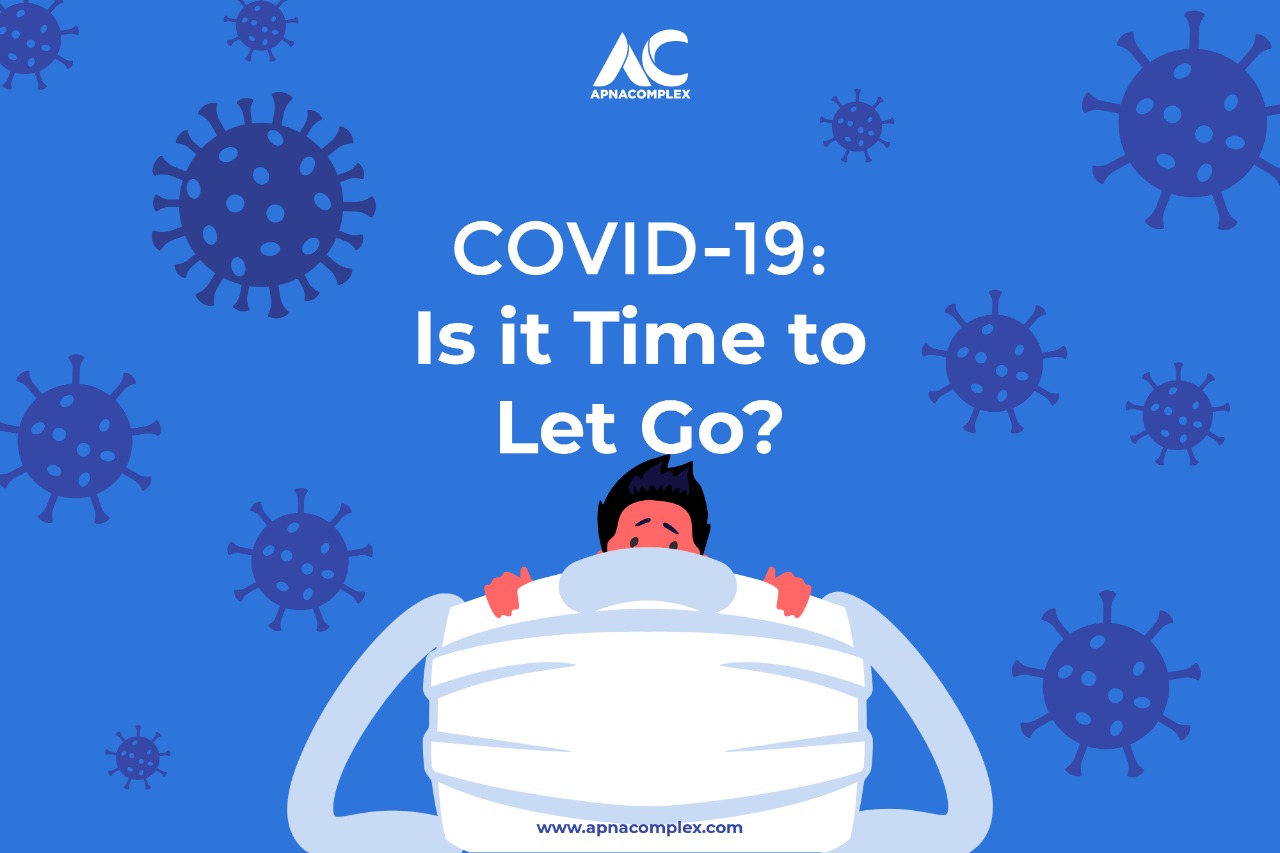Should we Still Worry About COVID-19?
Product News #covid, Apartment Management, apartment management committee, COVID 19, COVID tracker, vaccinationAs offices and public places open up, 2022 seems to be the year we resume our normal life after two years of a global pandemic. Yet, the year began with a highly contagious Omicron variant, again forcing us all to stay home. As the number of infections fell, normalcy started to return with gusto. From resuming in-office attendance to shopping and attending concerts, it seems we cannot wait to make up for the lost time.
But for those of us who would still like to put caution before fun or duty, the main question is, should we still be worried about COVID-19?
Are we over the COVID scare?
The answer can be mixed. While our overall COVID anxiety may have dipped in the wake of near-universal vaccination, it would be inadvisable to completely drop our guard. It must be noted that there are still fresh infections reported every day. For some people, COVID may still be fatal. However, the good news is that the rate of recovery is now over 98%.
The dilemma on whether or not we should stay cautious about COVID-19 comes from the rapidly changing status of the pandemic. As new variants are reported, the number of positive cases also seems to fluctuate. While countries like India have resumed normal day-to-day life, the Chinese government is still following a zero-COVID policy. After two years of intense precautions and anxiety around the pandemic, many may find it difficult to let go of all precautions.
In fact, the World Health Organisation still advises caution by keeping yourself safe, wearing a mask, and following good hygiene. The Government of India also strongly advises the use of face masks and hand hygiene. WHO safety guidelines are:
- Get vaccinated. Follow the government’s guidance on vaccination.
- Keep a physical distance of at least 1 metre from others, even if they don’t appear to be sick.
- Avoid crowds and close contact.
- Wear a properly fitted mask when physical distancing is not possible and in poorly ventilated settings.
- Clean your hands frequently with an alcohol-based hand rub or soap and water.
- Cover your mouth and nose with a bent elbow or tissue when you cough or sneeze. Dispose of used tissues immediately and clean hands regularly.
- If you develop symptoms or test positive for COVID-19, self-isolate until you recover.
What to do if you test positive?
Despite all precautions, you can still catch COVID. Remember that COVID is highly contagious and it is important to keep both yourself and others around you safe during this period. Start with educating yourself about COVID symptoms, which include fever, dry cough, sore throat, and breathing difficulty. You can do a home test or an RT PCR for confirmation. The GOI issued the following guidelines for home isolation:
- Isolate from other family members
- Stay in a well-ventilated room
- Wear a triple-layer medical mask at all times
- Take rest and drink a lot of fluids
- Wash your hands frequently or use a hand sanitiser
- Don’t share personal items including utensils
- Regularly clean frequently-touched surfaces
- Self-monitor blood oxygen saturation levels
- Keep track of your temperature
While the government advises self-monitoring of health, you should seek immediate attention if you have:
- Unresolved high fever (more than 100°F for more than 3 days)
- Difficulty breathing
- Dip in oxygen saturation with Sp ≤ 93% on room air for at least 3 readings in an hour or respiratory rate > 24/minute.
- Persistent pain or pressure in the chest
- Mental confusion or inability to arouse
- Severe fatigue and myalgia
Currently, the home-isolation period is at least 7 days after testing positive, provided there is no fever for 3 successive days. Asymptomatic people need not undergo COVID test, but should monitor their health in home quarantine.
How is ApnaComplex helping in creating COVID-safe communities?
Creating a COVID-safe community has been one of the major focuses during the pandemic. Management committees were responsible for enforcing the government’s safety guidelines. It involved multiple challenges, such as tracking and isolating each case as well as monitoring visitor entry.
As a leading apartment management software solution, ApnaComplex plays a critical role in ensuring that MCs are well-equipped to handle these challenges. The app offers a digital platform that enables different people to collaborate towards building a COVID-safe community. The various tools for this initiative include:
- COVID and Quarantine Tracker: The tracker was designed to record each positive case in an area, enabling residents and managers to track quarantined units.
- Vaccination Tracker: It created a transparent vaccination database for residents and staff.
- Gatekeeper: The visitor management monitors and tracks the visitors in any residential area. Through this system, security can ensure that COVID-safety guidelines are observed at all times.
- Facility Booking: This feature allows residents to book a facility like the gym or swimming pool. By limiting the number of bookings, management could control the number of people gathered at the facility.
- Contactless transactions: Fully automated payment gateways allow contactless payments across all functions, including rentals or maintenance payment.
- Digitized Moving Process: To reduce the chances of in-person contact, this feature allows new residents to get approval for all required documents well before moving in.
- Community engagement: With social interactions severely impacted due to COVID restrictions, our virtual community forums enabled residents to post notices and seek help.
To sum up, we must stay vigilant in implementing COVID-safe behaviour, especially in public spaces. Apartment management committees cannot afford to be lax in following the GOI’s guidelines. ApnaComplex offers multiple tools in helping residential complexes to plan for a safe environment while ensuring efficient delivery of services and fostering community relationships.
